Why Does Creatine Make My Stomach Hurt?
Author:
Unlock your full potential by engaging with our experts and community! Have questions about your fitness journey or looking for expert advice on weightlifting techniques? Don’t hesitate — leave a comment below and Oleksandr Maksymenko will provide a personalized answer and insights to help you reach your goals.
Torokhtiy is reader-supported. Some links are affiliate links, and we may earn a commission at no extra cost to you. See our disclosure page for details.
If you are taking creatine but get unwanted side effects such as getting an upset stomach, know that you are not alone. Creatine is a widely popular supplement used to help improve performance, strength, and muscle growth. But, why does creatine make my stomach hurt?
There are several reasons why creatine upset your stomach. It all depends on the type of creatine you are using, how much you are adding, if you are having it on an empty stomach, or the foods you are eating along with creatine.
Here, we’ll go over all the possible reasons why can creatine cause stomach pain
There are several reasons why does creatine make my stomach hurt. It all depends on the type of creatine you are taking. A highly water-soluble option like micronized creatine can avoid stomach cramps. Also, taking a large dose of creatine can also increase the risk of digestive issues.

What Is Creatine?
Creatine is a naturally occurring molecule in the body that helps create ATP. It is stored mostly in skeletal muscle to use when needed. While the body produces creatine, it can do so in a small quantity.
Supplementing with creatine can help saturate the cells and provide several benefits. Research shows that adding a creatine supplement might help increase energy levels, muscle growth, performance, and recovery.
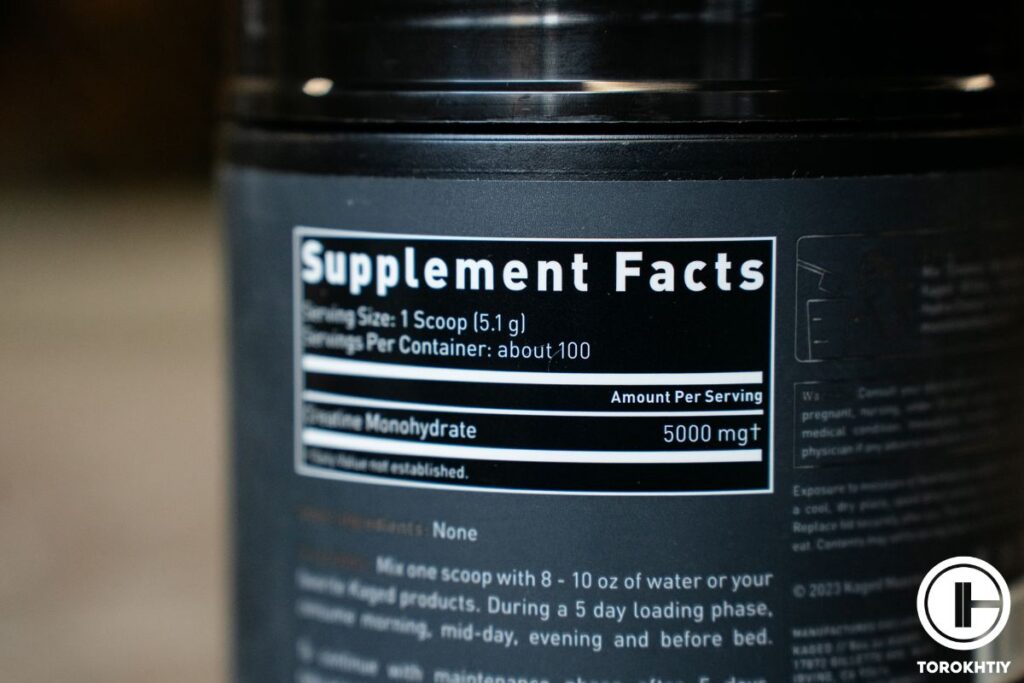
The average recommendation for creatine is 3 to 5 grams daily. However, some people might need a larger dose (like bodybuilders and athletes) or might need a loading phase to get the benefits of creatine quickly.
Why Does Creatine Make My Stomach Hurt?
While creatinThe Form of Creatine e is safe, it might increase the risk of digestive issues, such as bloating, stomach cramps, and diarrhea. And, there are several reasons why you get creatine stomach cramps.
1. The Form of Creatine
One of the main reasons for getting stomach cramps is the type of creatine you are taking. There are several forms of creatine, but not all of them are highly soluble in water. As a result, it can cause clumps of the supplement in your stomach, which might cause stomach issues.
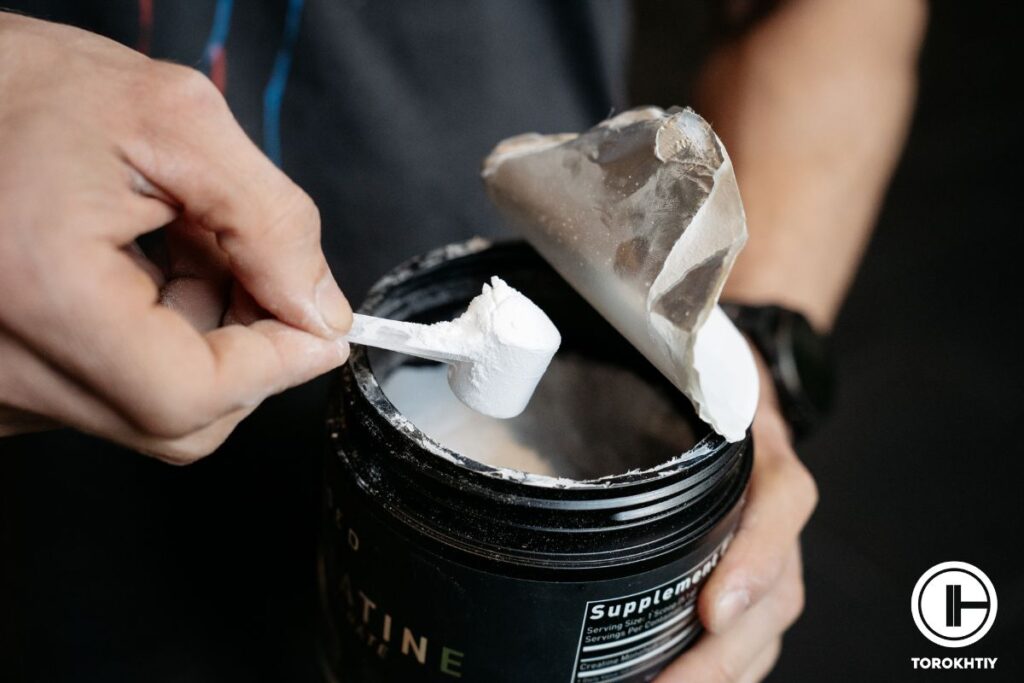
2. How Much Creatine You Are Taking?
Another possible reason is that you are taking too much creatine. When you ingest too much creatine, more than the body can handle, it can increase the risk of bloating and stomach cramps.
creatine dosage calculator
Loading Phase:
Maintenance Phase:
3. Taking Creatine With An Empty Stomach
While taking creatine on an empty stomach is completely fine, some people might experience more digestive issues when taking it on an empty stomach.
How To Reduce The Likelihood of Stomach Problems When Taking Creatine?
Nobody wants to get digestive issues, especially if they are going to interfere with your workouts. So, how to stop stomach pain from creatine? Here, we’ll go over 5 strategies to help you avoid stomach cramps and a supplement recommendation to decrease the risk of digestive issues.
1. Use Micronized Creatine Monohydrate
As previously mentioned, not all forms of creatine are highly soluble in water. For example, while creatine monohydrate is the best option, it might not be the most soluble. As a result, undissolved creatine crystals can irritate the stomach wall and cause negative symptoms.
In this case, you might want to choose a creatine supplement that is highly soluble in water, such as micronized creatine monohydrate.
In simple terms, micronized creatine is one that has been broken down into smaller particles, making it more soluble and easier to absorb in the body.
2. Avoid Loading Phase
People who start taking creatine often do a loading phase to get the benefits of creatine quicker. While it is not necessary or mandatory, some find it helps speed up the process. The loading phase works by taking 20 to 25 grams of creatine for 5 to 7 days.
After the loading phase, you enter the maintenance phase, which is taking 3 to 5 grams of creatine daily as long as needed.
The problem is that by taking too much creatine it can increase the risk of digestive issues. So, if you want to avoid having stomach cramps, avoid doing the loading phase and just take your regular dose daily for 30 consecutive days. You’ll still get the same results, only for a longer time.
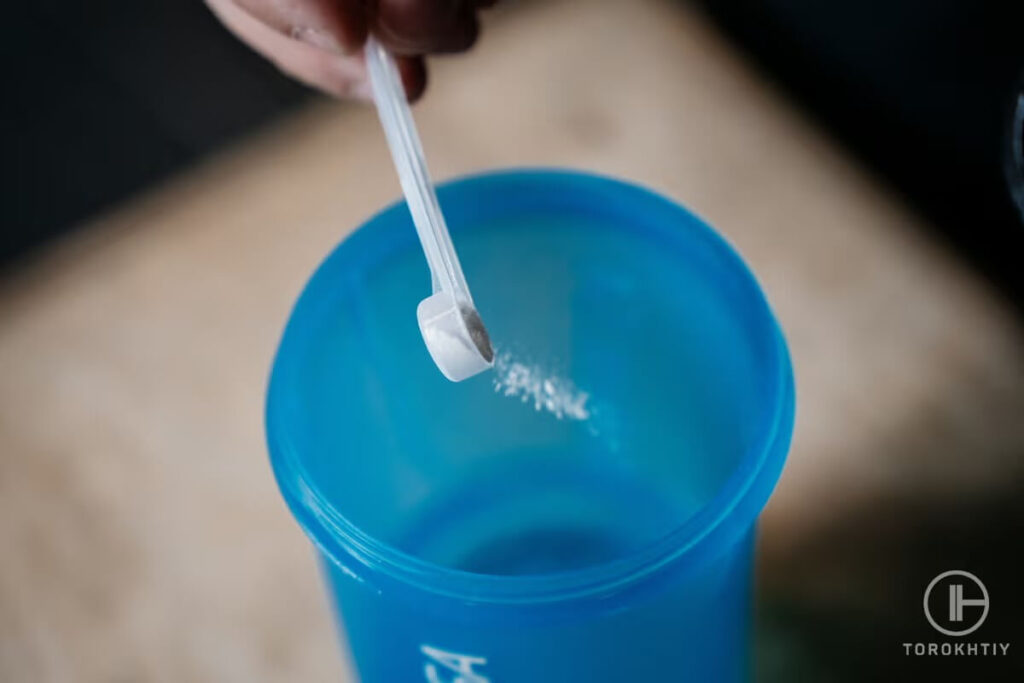
3. Take Creatine With Meals
Taking creatine with an empty stomach can increase the risk of digestive issues because the undissolved creatine particles will affect the stomach. For that reason, it’s best to take it with a meal, it may reduce the contact of creatine particles with the stomach.
In fact, evidence suggests that taking creatine along with some carbs and protein can increase its effect, such as greater strength outcome. For example, you can mix your creatine supplement with a protein shake (protein) and fruit (carbs).
4. Avoid Coingesting Creatine With High Fiber Foods
Now, you want to take creatine with foods, but you need to be careful on what type of foods you add. Eating high-fiber food can only increase the risk of stomach cramps if you are not used to a high fiber intake.
Fiber exerts a mechanical stimulation/irritation of the colonic mucosa with increased secretion and peristalsis, which itself may cause gastric discomfort in sensitive individuals. Since fiber reaches the intestines intact, the bacteria ferment it, causing gas. When there is gas buildup, it can lead to bloating and stomach cramps.
So, if you are not used to having high-fiber foods such as whole grains, legumes, and vegetables, do not increase their amount drastically while taking creatine. Add fiber-rich foods gradually and observe how much is well tolerated.
5. Drink More Water
Creatine needs a good water intake to function properly and for its digestion. If you don’t drink enough water, it increases the risk of stomach cramps. When taking creatine, make sure you drink plenty of water. Both at the time of taking creatine, as well as the rest of the day.
If you are already well hydrated, there is no need to significantly increase your water intake when incorporating creatine into your diet. For every 3-5g of creatine, about 8 ounces of water is sufficient. Pay close attention to your body’s signals and adjust your water intake as needed.
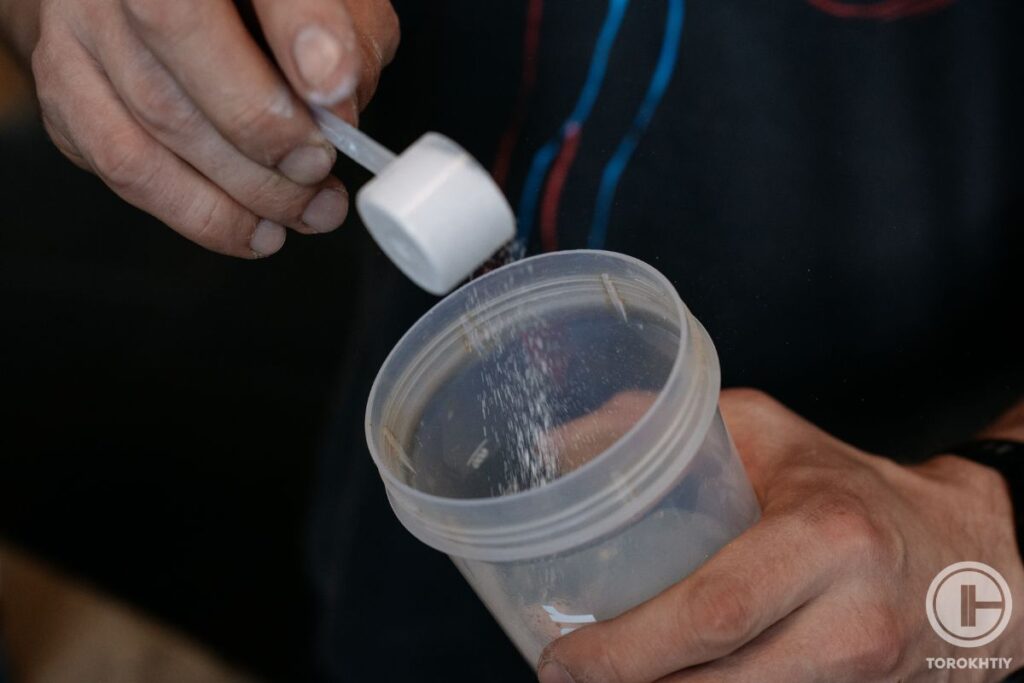
The specific amount of water to consume when using creatine can fluctuate depending on factors such as body size, activity level, and overall hydration needs. If you don’t know how much daily water you need, consult with a health professional to get some guidance based on your goals and needs.
COR-Performance Creatine
Cellucor COR-Performance Creatine
- Form: Powder
- Servings per Container: 72
- Type: Monohydrate
- Suitable for Vegans: Not Specified
- Other Ingredients: None
- Price per Serving (5g): $0.42
- Company Founded: 2003
- Recommended by Athletes: Janet Layug, Sadik Hadzovic
Finally, to avoid getting stomach cramps, make sure you are getting a high-quality creatine supplement. Our top recommendation is Cellucor COR-Performance Creatine Monohydrate powder.
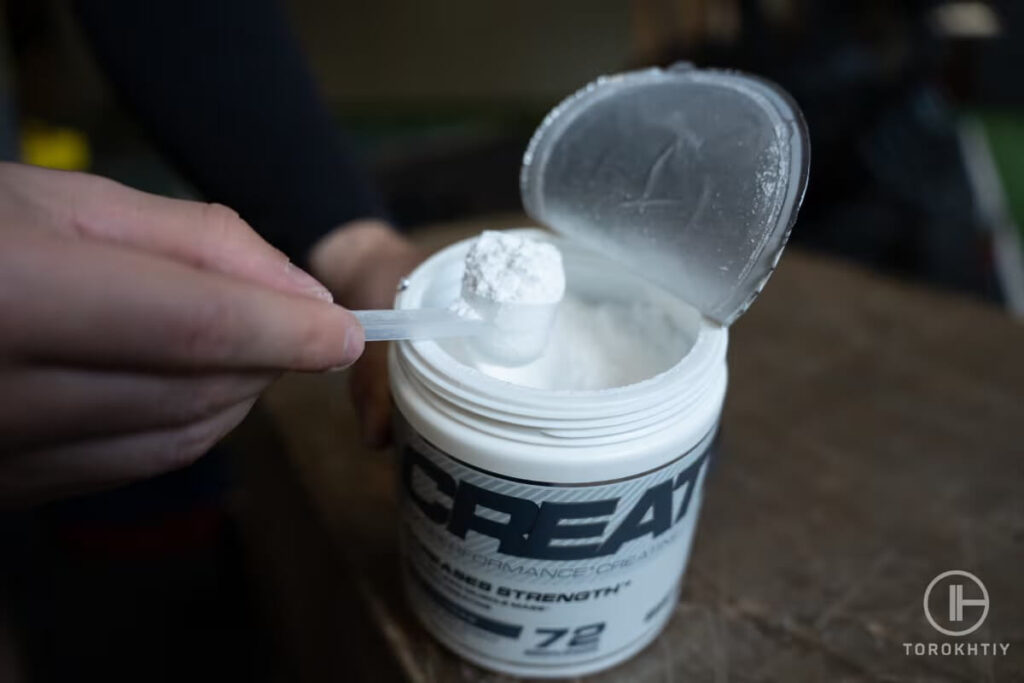
The supplement is made with micronized creatine. On top of that, it doesn’t contain any additives, sweeteners, or colorings that might increase the risk of digestive issues. In the end, you are only getting what you are looking for, which is creatine.
FAQ
How Do You Stop Your Stomach From Hurting After Taking Creatine?
Extra fluids or food intake may help you, especially if you took creatine on an empty stomach. However, if your stomach hurts too much or the symptoms are constant, consult with a health professional to get the best medication for your condition.
Is It Ok to Take 10 Grams of Creatine at Once?
Yes, if that is what you need based on your goals, it’s okay to take 10 grams of creatine at once. However, keep in mind that taking a large dose can increase the risk of digestive issues, such as bloating, stomach cramps, and diarrhea.
Conclusion
So, is creatine bad for your stomach?
It all depends on the type of creatine and how much you are taking. For example, options like micronized creatine monohydrate are highly soluble in water, meaning that they can decrease the risk of stomach cramps.
A great supplement to take is Cellucor COR-Performance, which is made with micronized creatine, and it doesn’t contain any additives or preservatives that might increase the risk of stomach issues.
Finally, be careful on the dose you are taking (taking too much can increase symptoms), and make sure to take it with some food, but avoid those foods that are high in fiber.
Which solution helped you reduce stomach cramos? Let us know in the comments.
Also read:
- Creatine Hcl Dosage
- Why Is Creatine So Expensive Now
- What Happens When Creatine Expires
- Should You Take Creatine on Days You Dont Workout
- Will Creatine Make You Stronger
- L Glutamine or Creatine
- Creatine or L Carnitine
- Can You Dry Scoop Creatine
- Does Creatine Make You Poop
- Does Creatine Boost Energy
- Does Creatine Have Caffeine
References:
- P.D. Balsom, “Skeletal muscle metabolism during short duration high-intensity exercise: influence of creatine supplementation”, National Library of Medicine, https://pubmed.ncbi.nlm.nih.gov/7572228/
- Sergej M Ostojic, “Gastrointestinal distress after creatine supplementation in athletes: are side effects dose dependent?”, National Library of Medicine, https://pubmed.ncbi.nlm.nih.gov/18373286/
- Matthew B Cooke, “Creatine supplementation enhances muscle force recovery after eccentrically-induced muscle damage in healthy individuals”, BMC Part of Springer Nature, https://jissn.biomedcentral.com/articles/10.1186/1550-2783-6-13
- Richard B. Kreider, “International Society of Sports Nutrition position stand: safety and efficacy of creatine supplementation in exercise, sport, and medicine”, BMC Part of Springer Nature, https://jissn.biomedcentral.com/articles/10.1186/s12970-017-0173-z
- CRIBB, PAUL J., “A Creatine-Protein-Carbohydrate Supplement Enhances Responses to Resistance Training”, Medicine&Science in Sports&Exercise, https://journals.lww.com/acsm-msse/Fulltext/2007/11000/A_Creatine_Protein_Carbohydrate_Supplement.10.aspx
- Photos made by Torokhtiy Media Team.
Why Trust Us?
With over 20 years in Olympic weightlifting, strength training, nutrition coaching, and general fitness our team does its best to provide the audience with ultimate support and meet the needs and requirements of advanced athletes and professional lifters, as well as people who strive to open new opportunities and develop their physical capabilities with us.
By trusting the recommendations of our certified experts in coaching, nutrition, and sports training programming, as well as scientific consultants, and physiotherapists, we provide you with thorough, well-considered, and scientifically proven content. All the information given in the articles concerning workout programming, separate exercises, and athletic performance, in general, is based on verified data.
The product testing process is described in more detail here.
Author: Oleksandr Maksymenko
Certified Sports Nutritionist,
MSc Sports Dietetics
Specializing in: Weight management, Fitness / Sports nutrition
Oleksandr is a professional fitness nutritionist certified by the Fitness Professional Association (FPA). He follows the principles of evidence-based dietetics and fosters a healthy relationship with food in his clients, ensuring there are no strict prohibitions on their favorite foods or frequent lapses. His primary goal is not only to achieve results for you but also to sustain them over the long term, all while enjoying tasty and delicious food.



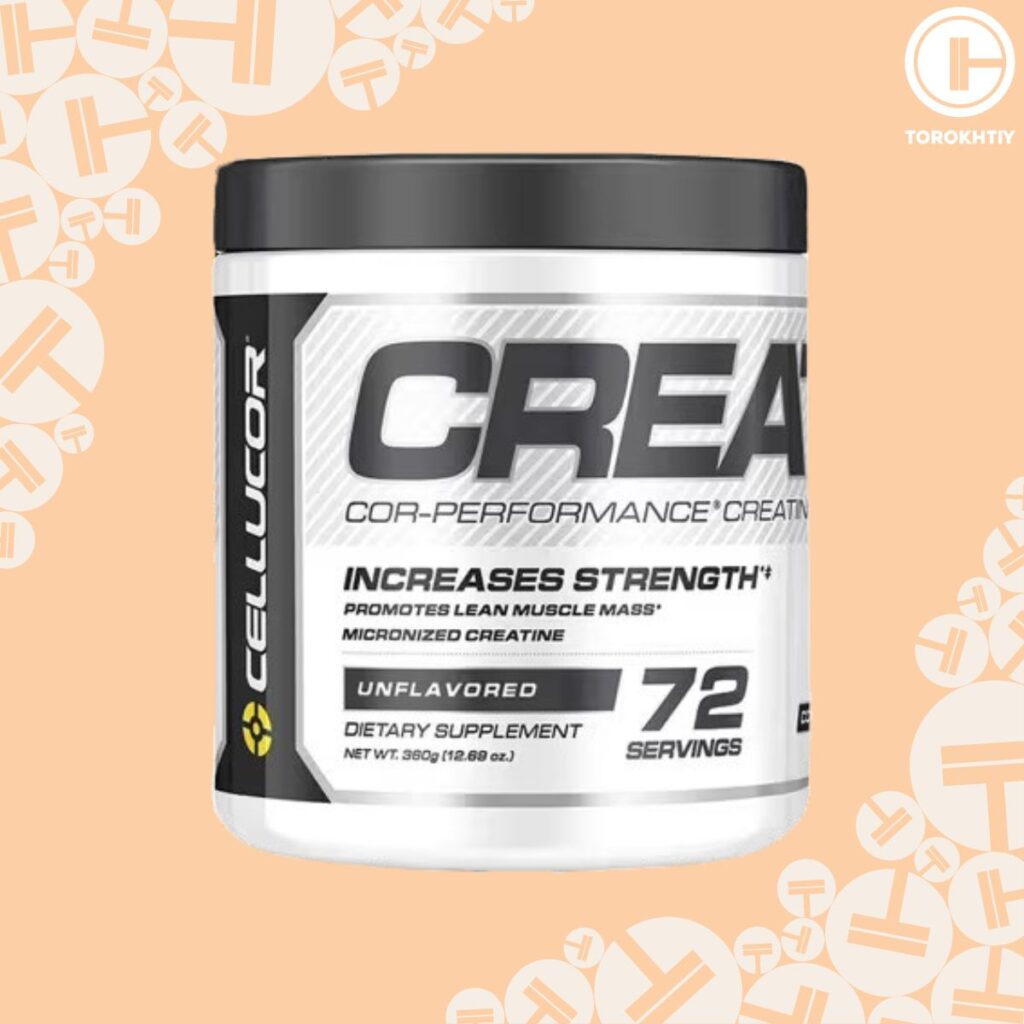
Still have questions after reading our article? Unlock your full potential by engaging with our experts and community! Don’t hesitate — leave a comment below and Oleksandr Maksymenko will provide a personalized answer and insights to help you reach your goals.